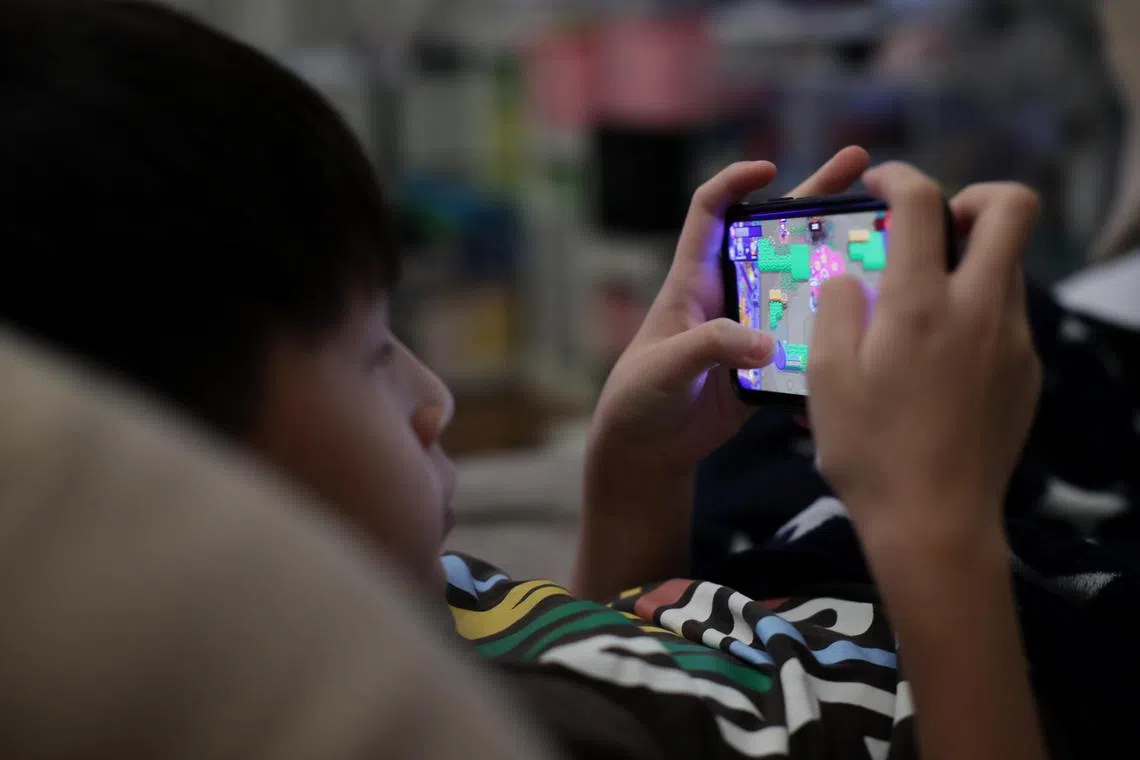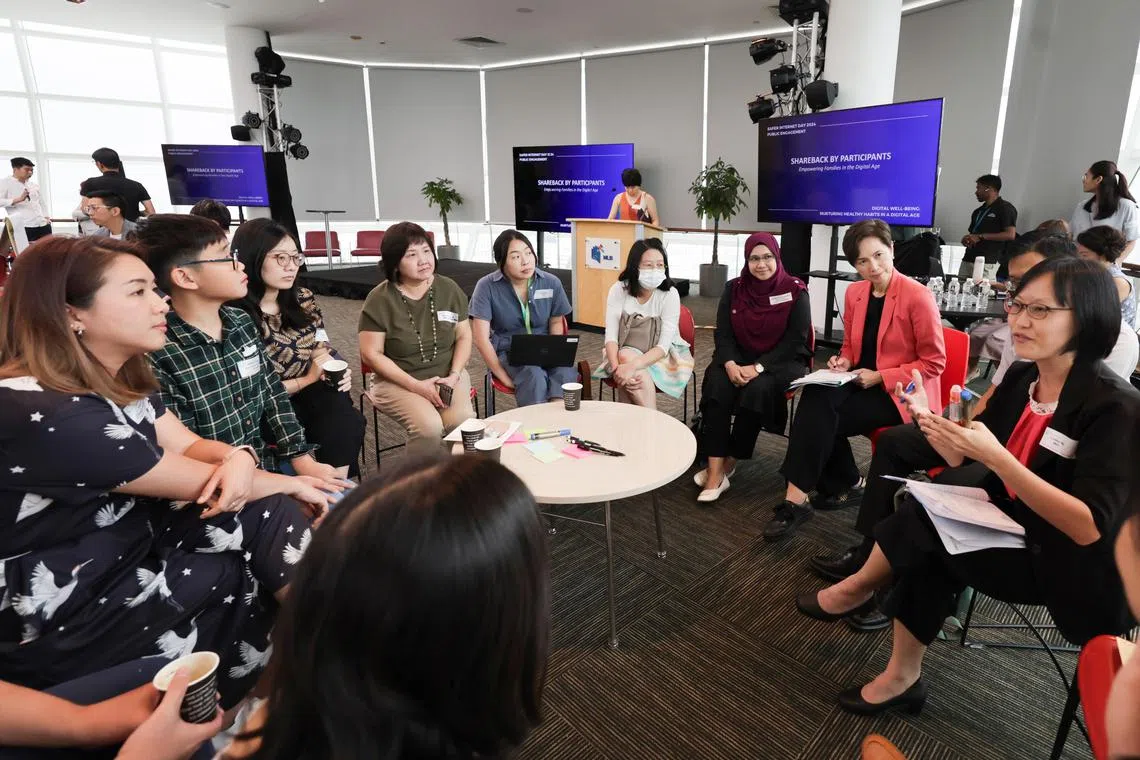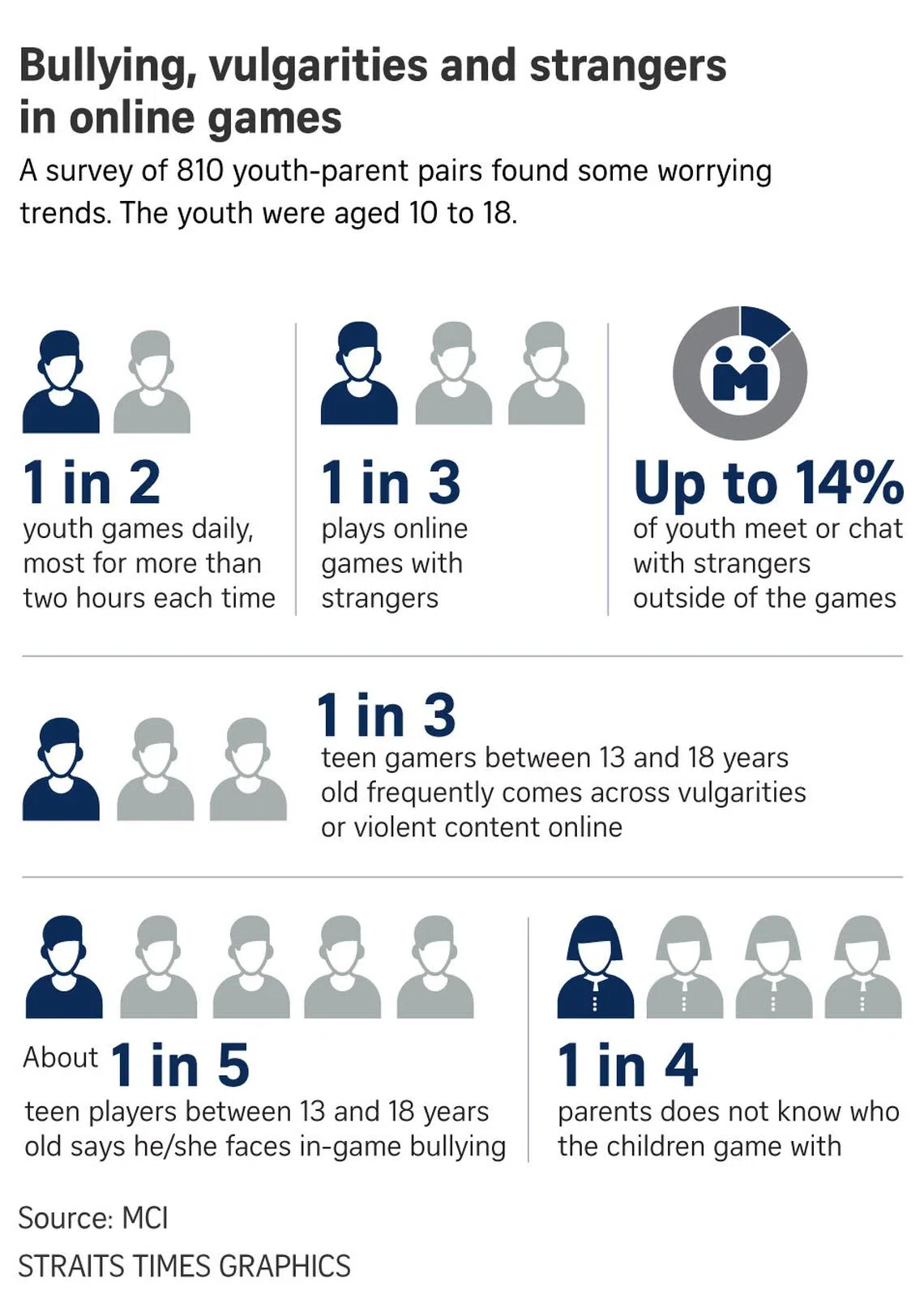Sore loser or cyber bullied: How do I know if my child is being bullied while gaming online?
Sign up now: Get ST's newsletters delivered to your inbox

Parents should pay attention to a child's complaints even if it seems mundane, said experts.
PHOTO: ST FILE
SINGAPORE - When it comes to video games, how do you know if your child is being bullied or just making a fuss?
Parents should pay attention to both scenarios, as symptoms from either can escalate into negative consequences, according to experts at a focus group discussion among parents, industry players and online safety advocates.
They were gathered to discuss matters of online safety in gaming on Feb 13 at the National Library Building in Victoria Street following the launch of Singapore’s first youth online gaming survey
Harmful behaviours in online games can come in various forms, said Ms Anita Low-Lim, who is the chief transformation officer at Touch Community Services. These include ostracising children because they are not as good as other gamers, being sworn at or actively bullied.
“When you’re not picked as a team player, the sense of rejection is difficult for young people,” said Ms Low-Lim.
She added that parents should pay attention when their children show signs like keeping to themselves abruptly.
Institute of Policy Studies principal research fellow Carol Soon said she is concerned that such harms become normalised online if young gamers and their parents do not know how to respond.
“We should see bullying from the perspective of the victim and not what we think is acceptable,” said Dr Soon.
“(They can be) subject to coercive bullying by a group or name-calling. What we think is OK might not be comfortable for young people.”
But young people and their parents seem to be unaware about what to do when faced with harmful behaviour online, she said, referring to the survey, which found that most parents were not fully aware of what their children were up to in online games. Only half could give an accurate estimate of how much time their child spent online; one in four parents were completely oblivious about who their child gamed with.
Roughly half of the 810 children and teens who responded said that they do not take action, such as reporting a user, when they encounter bad behaviour.
In a speech to close the forum, Communications and Information Minister Josephine Teo urged parents to have open conversations with their children about gaming to build trust.

Minister for Communications and Information Josephine Teo (in red jacket) with the attendees on Feb 13.
ST PHOTO: GIN TAY
Reflecting on her own experience, she said she was puzzled by the “mysterious” world of online gaming when one of her three children began gaming. Her not being well-versed in the realm of video games at that time led to disagreements.
“The amount of time she spent on games made me worried and I had no idea who she was interacting with,” said Mrs Teo. “I do not game so I do not have a sense of her experience.”
“Inevitably, you may get into an argument about how much time you spend (online),” said Mrs Teo. “But if you build a strong relationship with your child, you might not know exactly what they are doing, but you can trust that if they are in serious trouble, they can come to you.”
A parent at the event, Ms Esther Foong, 39, said she regularly runs through potential scenarios with her 13-year-old son, Nathan, on what he might face online and in reality.
“We run through sticky situations and how we can respond, so that he is prepared and doesn’t just react based on his emotions or fear,” said Ms Foong, the co-founder of SGFamilies, a movement to promote healthy parenting. “Like what happens if someone curses at you in a game, or one day, offers you a cigarette.”
“A lot of how a child behaves online stems from how parents interact with them in reality,” said Ms Foong.

River Valley High School student Nathan Foong and his mother Esther Foong, co-founder of SGFamilies.
ST PHOTO: GIN TAY
Nathan is an avid player of Minecraft and mobile multiplayer games like BombSquad, which he plays with friends and random players online. He has reported other players several times since he started online gaming in 2021, including when a player used in-game modifications to cheat and when another player used profanities on others.
Nathan said: “This is supposed to be a fun game, why do people need to do bad things like this?”
Tips for parents
Experts weighed in on what parents can do to keep an eye on their children’s gaming activities, even if they are unfamiliar with video games.
Read up, or play: Ms Low-Lim encourages parents to read up on games that are popular among young people, taking note of features such as whether players can openly talk to strangers or buy items in-game, and what safety controls are available. Parents can go a step further to play the games to familiarise themselves with their child’s experience.
Don’t ignore signs: Look out for children who suddenly become withdrawn or cut off communication channels. And show concern for young gamers, even if the issues seem mundane to grown-ups, as such matters can still affect children emotionally, says Dr Soon.
Open communication: Don’t try to control every aspect of a child’s online activities, but understand their experience and encourage them to share openly when faced with serious mattters, says Mrs Teo.
If your child is a bully: Try to understand what triggers a child to behave in an antisocial way, says Ms Low-Lim. Parents and children can agree on a strike system with certain consequences, like a time-out for repeated bad behaviour.



